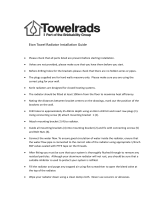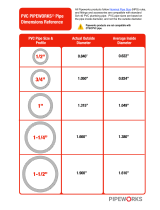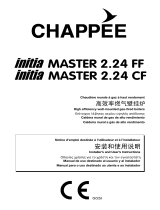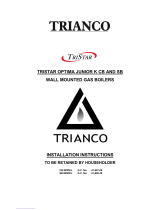
Regulations and directives
Buderus 500-24S - Subject to modifications resulting from technical improvements
3
Regulations and directives
All gas appliances must be installed by a competent per-
son in accordance with the current Gas Safety (Installa-
tion and Use) regulations.
Failure to install appliances correctly could lead to prose-
cution.
The appliance installation must comply with the current:
Gas Safety Regulations,
IEE Regulations,
Building Regulations,
Building Standards (Scotland) (Consolidation),
Building Regulations (Northern Ireland),
local water by-laws,
Health and Safety Document 635 (The Electricity Work
regulations 1989) and any other local requirements.
The relevant British Standards should be followed,
including:
Where no specific instruction is given, reference should
be made to the relevant British Standard codes of Prac-
tice.
The manufacturer's notes must not be taken, in any way,
as overriding the statutory instrument laws.
The design and construction of the Buderus wall-
mounted condensing gas combi boiler 500-24s conforms
to the basic specifications listed in the European directive
governing gas-fired appliances 90/396/EEC, and with
respect to EN 625, EN 483 and EN 677.
For optimum long term reliable functioning under domes-
tic conditions, the boiler must be inspected and main-
tained as per these instructions, at least once a year by an
officially recognised service engineer.
The term "domestic conditions" means that the boiler is
used to provide central heating and / or hot water to no
more than one single family dwelling.
Failure to comply with these instructions will invalidate the
appliance warranty.
Timer Frame Buildings
If the boiler is to be fitted in a timber framed building it
should be fitted in accordance with the Institute of Gas
Engineering document IGE/UP/7 and BS 5440:1.
The appliance must only be installed along with Buderus
flue kits, as these are certified for use with the boiler.
BS5440:1 : Flues and ventilation for gas appli-
ances of rated heat input not ex-
ceeding 70 kW (net): Flues
BS5440:2 : Flues and ventilation for gas appli-
ances of rated heat input not ex-
ceeding 70 kW (net): Air Supply
BS5546 : Installation of gas hot water sup-
plies for domestic purposes
BS5449 : Forced circulation of hot water
systems
BS6798 : Installation of gas fired boilers of
rated input up to 70 kW (net).
BS6891 : Installation of low pressure gas
pipework up to 28 mm (R1)
BS7074:1 : Code of practice for domestic and
hot water supply
BS7593 : Treatment of water in domestic hot
water central heating systems
EN.12828 : Central heating for domestic
premises
Warning: Notes relating to the heating
system water.
Thoroughly flush the system before it is filled
with water. Use only untreated water or water
treatment product such as Sentinel X100 to
fill and top up the system. For more informa-
tion about Sentinel call 0151 420 9563.
When using water treatment, only products
suitable for use with Buderus heat exchang-
ers are permitted (e.g. Sentinel X100).
Your warranty is at risk if an incorrect water
treatment product is used in conjunction with
this appliance.
For more information, contact Buderus Tech-
nical Product Support Department.
It is most important that the correct concen-
tration of the water treatment product is
maintained in accordance with the manufac-
turer's instructions.
If the boiler is used in an existing system any
unsuitable additives MUST be removed by
thorough cleaning. BS.7593 details the
steps necessary to clean a domestic central
heating system.























